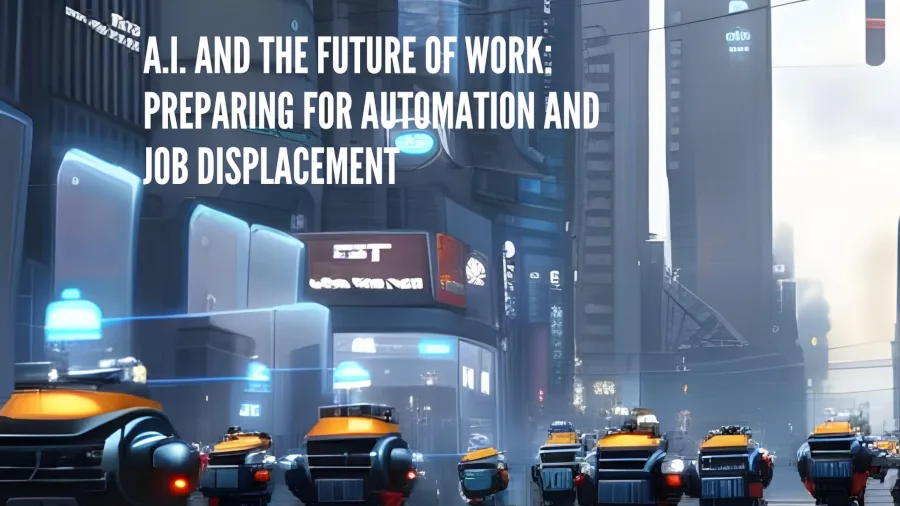Artificial intelligence (A.I.) and machine learning (ML) are rapidly transforming the workplace, with profound implications for the job market. While some argue that the integration of A.I. and ML will lead to new opportunities and greater efficiency, others warn of significant job displacement and ethical concerns.
As A.I. and ML continue to advance, it is crucial for business owners, leaders, and executives to prepare for automation and job displacement. This investigation delves into the impact of A.I. and ML on the job market, strategies for businesses to adapt, and the ethical considerations and challenges of A.I. and ML in the workplace.
- The Impact of A.I. and ML on the Job Market
- Preparing for Automation and Job Displacement
- Ethical Considerations and Challenges of A.I. and ML in the Workplace
- Conclusion
The Impact of A.I. and ML on the Job Market
A.I. and ML are already being used in various industries, from healthcare and finance to transportation and retail. These technologies can improve productivity, reduce costs, and enhance decision-making. For example, A.I. algorithms can analyze vast amounts of data to identify patterns and make predictions, while ML can be used to automate routine tasks and improve accuracy.
However, the potential benefits of A.I. and ML must be balanced against the potential drawbacks. One of the most significant concerns is job displacement. According to a report by the McKinsey Global Institute, up to 375 million workers worldwide may need to switch occupations or acquire new skills by 2030 due to automation. While some new jobs will be created, they may require different skills and qualifications than the jobs that are lost.

Preparing for Automation and Job Displacement
To adapt to the changes brought by A.I. and ML, businesses must take a proactive approach. This includes reskilling and upskilling employees to prepare for new roles, rethinking job roles and responsibilities, and exploring new markets and opportunities.
For example, businesses can invest in training programs to help employees develop new skills, such as data analysis or customer service. They can also consider automating routine tasks while creating new jobs that require more advanced skills, such as programming or engineering. Finally, they can explore new markets and opportunities, such as expanding into emerging industries or launching new products or services.
Ethical Considerations and Challenges of A.I. and ML in the Workplace
As A.I. and ML become more integrated into the workplace, there are also significant ethical challenges to consider. For example, A.I. algorithms may be biased or discriminatory if they are trained on biased data. They may also raise concerns about privacy, as they can collect and analyze large amounts of personal data. Finally, they may have negative impacts on mental health and wellbeing, as employees may feel pressured to work longer hours or be replaced by machines.
To mitigate these ethical challenges, businesses must ensure that the implementation of A.I. and ML is responsible and ethical. This includes developing transparent and unbiased algorithms, respecting privacy rights, and prioritizing employee well-being. It also includes engaging in broader societal conversations about the future of work and the impact of A.I. and ML on society.
Conclusion
The integration of A.I. and ML in the workplace is transforming the job market, with significant implications for businesses and employees alike. While these technologies can improve productivity and reduce costs, they also raise concerns about job displacement and ethical considerations. To prepare for these changes, businesses must take a proactive approach, investing in reskilling and upskilling programs, exploring new markets and opportunities, and ensuring that the implementation of A.I. and ML is responsible and ethical.
